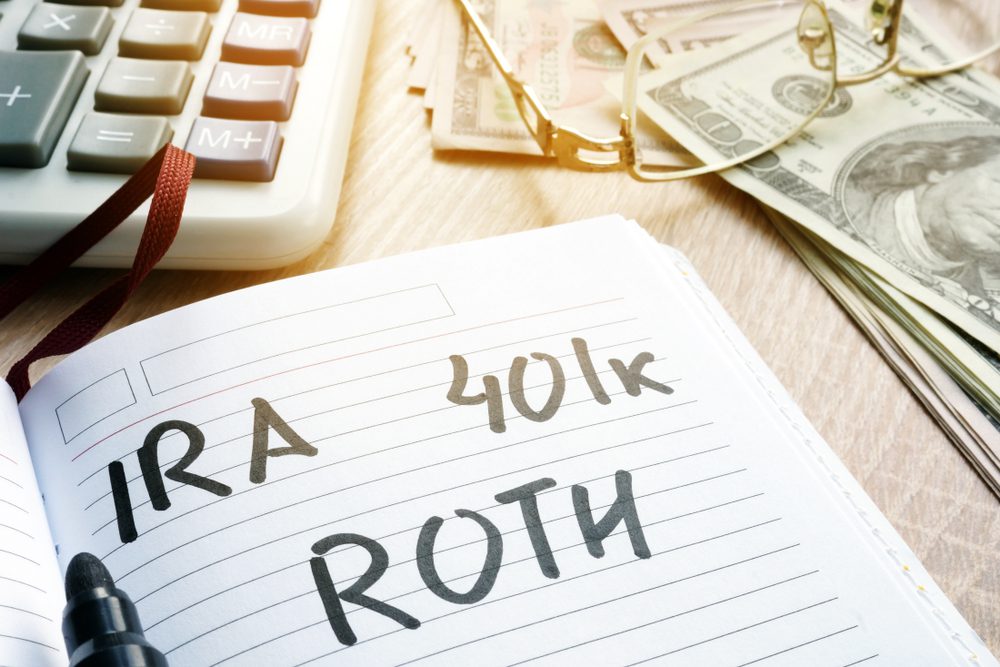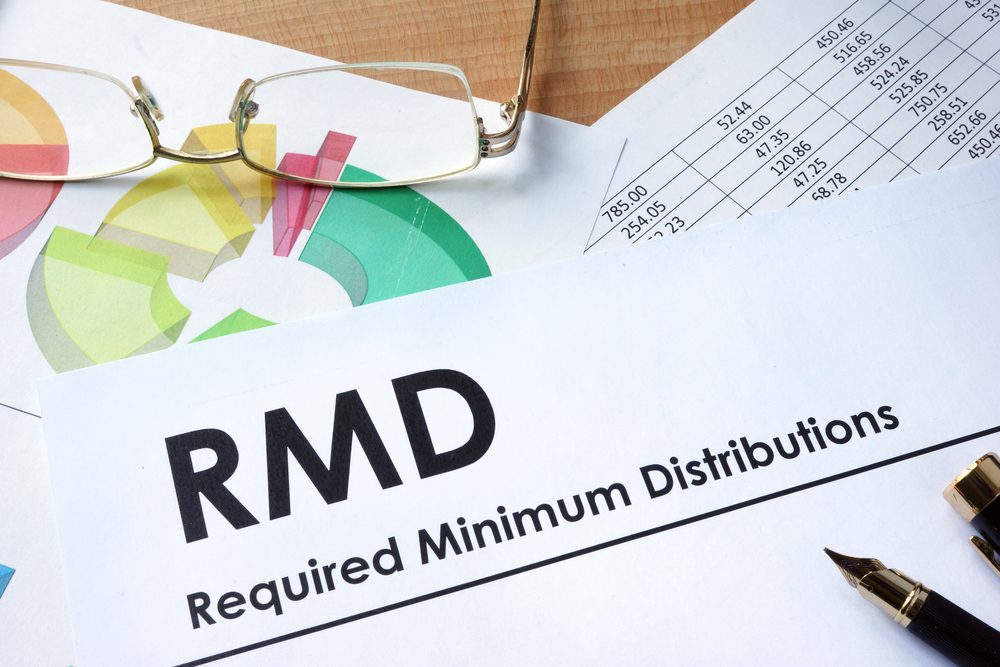How Can You Manage Your Savings When You Retire? Your 401k Will Help!
Funds that are saved in a 401k are intended to provide you with income in retirement. IRS rules prevent you from withdrawing funds from it without penalty until you reach age 59 and a half.
With a few exceptions, early withdrawals before this age are subject to a tax penalty of 10% of the amount withdrawn plus a 20% mandatory income tax withholding of the amount withdrawn from a traditional 401k.
After you turn 59 and a half, you can begin taking distributions from your account. One of the most significant decisions new retirees must make is what to do with the money in their company-sponsored 401(k) plan.
You can typically maintain your 401(k) with your former employer or roll it over into an individual account for retirement.
IRAs carry the same tax benefits as a 401k and typically offer more investment options, but there are instances when it makes sense to keep your money in the 401(k) plan.
This can all sound a bit confusing, so let’s simplify it! Here’s how to decide what to do with your 401(k) when you retire:
…Continue reading to see what you CAN and CAN’T do!

Can: Roll it Over to Another Retirement Plan
If you’re still working and you change employers, don’t leave your 401(k) plan behind! Actually, in many cases, employers don’t let former employees maintain their accounts with them, and unfortunately, you’ll be forced to take it with you.
The great news is that 401(k) plans ARE portable. This means you can roll them over into another retirement plan you have. If your new job has a 401k plan, you can roll your former plan into your new one with no consequences to your taxes.
If your new employer doesn’t include a retirement plan, you can open up an IRA and roll your 401(k) program into that. Remember that if you roll over your 401(k) plan into an after-tax account, like a Roth IRA, you’ll owe ordinary income tax on the entire amount you convert.
You should consult a tax advisor on this subject if you plan on going with this route.
Can’t: Invest Beyond the Parameters of the Plan
One of the main disadvantages of a 401(k) is that your investment options are restricted to what your plan administrator can offer. In most circumstances, this means a range of mutual funds. Some plans are better than others, however.
The best programs provide a wide variety of investing options. But some might only have a few stock or bond funds to choose from, usually to reduce employer costs.
Even though a 401(k) plan can be a tremendous tax-deferred investment option, especially if your employer offers matching funds, you can’t pick your own stocks, cryptocurrency, or other investments in most cases.
Can: Take Out A Loan
Even though you should never drain your retirement savings except in cases of an extreme emergency, most plans DO allow you to take out loans. If permitted, you can borrow the lesser of 50% of your vested account value or $50,000.
Loans are generally paid back over a three to five-year period, and you pay the interest on the loan back to your own account. This isn’t generally an advisable strategy.
It’s good to know that this loan option is permitted according to IRS regulations if you’re in a tough situation. Unfortunately, not all employers allow them.
Can’t: Freely Leave Your Job If You Have a 401(k) Loan
There’s always the obvious chance that you will leave your job or get fired. But if you have a huge 401(k) loan, you may need to tread lightly. When you leave the company, you normally have to pay back your outstanding 401(k) loan within a short amount of time.
If you don’t have the cash to be able to accomplish that, your loan will be treated as a distribution from the IRS, which could be disastrous for you financially.
Not only will you owe the ordinary income tax on the amount of your loan, but you’ll also have to pay a 10% early distribution penalty if you haven’t yet reached age 59 and a half.

Can: Contribute On An After-Tax Basis
Though not all plans allow this, the IRS allows for after-tax contributions to a plan. This means that when you take out that portion of your 401(k) in retirement, your total distribution will be tax-free, not just your what you’ve earned.
Generally, this type of plan is known as a Roth 401(k). Contribution limits on after-tax 401(k) contributions are the same as the limits with pretax contributions. Still, both types of subsidies must be added together to determine whether you remain within your limits.
Can’t: Exceed Your Annual Contribution Limits
No matter which type of 401(k) plan your company offers you, you’ll have to go by the annual IRS contribution limits. For this year, the limit on employee elective deferrals is $22,500. If you’re 50 years old or older, you can contribute an additional $6,50.
For 2021, the total amount that you were able to contribute to your account, including your own contributions, your employer’s contributions, and any other additions, was the lesser of $58,000 ($64,500 including catch-up contributions) or 100% of your earned compensation.
… Now that we’ve covered the basics, here are a few more details you should consider:
Think About The Age 55 Rule
If you wait to leave your job until you turn 55 or later, you could start penalty-free 401(k) withdrawals. Nevertheless, if you roll the funds over into an IRA, you’ll be required to wait until 59 and a half to avoid the 10% early withdrawal penalty.
Keeps Costs Low
Look at the administrative and investment costs that come with your plan. You can look up the fees you’re paying on your annual 401(k) fee disclosure statement. You might be able to move your money into lower-cost funds within that plan.
You can even compare the fees and investment costs in your 401(k) plan to potential IRAs.
Your employer might have negotiated low prices with the administrator, especially if you’re with a large company. But if your plan has high fees, you could find a more suitably priced IRA.
Evaluate Your Investment Options
Most plans have a limited investment choice. If you’re happy with the provided investments, there’s no reason to switch. However, IRAs have a more comprehensive selection of investment options than 401(k) plans do. You might be happier rolling it into an IRA.
Typically, 401(k)s don’t have an extensive catalog of investment choices. A standard plan might have a few dozen funds.
At the same time, an IRA can provide thousands of investment choices, including a whole gamut of individual securities, bonds, mutual funds, and exchange-traded funds.
By switching to an IRA rollover, you should be able to build the portfolio you want and get the rate of return you need so you don’t outlive your money.

Take Required Minimum Distributions
If you’re aged 72 or older, you have to take the required minimum distributions from your 401(k) account every year. You don’t actually have to touch it until you turn 72.
If you stay with your job past age 72 and don’t own 5% or more of the company, you might be able to continue to delay 401(k) withdrawals while you’re working if your plan will allow it. Distributions from standard retirement accounts count as income.
Make sure you plan out when to begin taking the distributions to lessen the impact of taxes. A fee-only financial planner or accountant can help you determine the best way to maneuver the tax impact of your decisions.
For some more official information regarding your plan, be sure to check with the IRS and stay informed of your options!
If you want to stay up to date on everything related to your retirement life, we’ve got lots of useful articles for you to read. Including this one: 5 Best Spending Strategies in Retirement


















One Response
I have visited several blogs, but the audio feature for songs on this website is truly excellent.